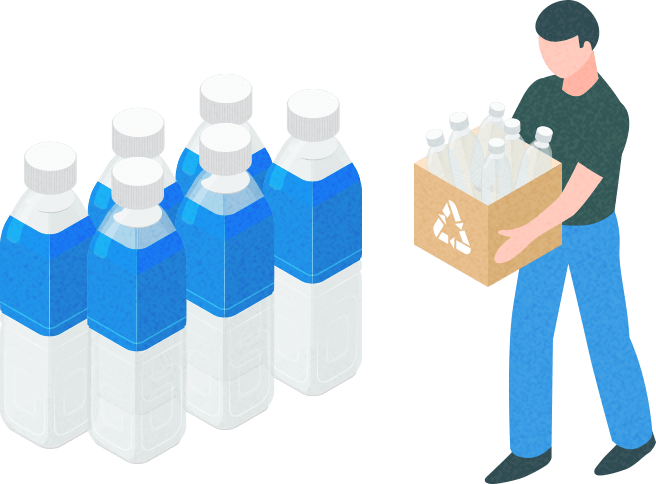

Circular Economy Initiatives
Local Production for
Local Consumption Recycling
Renewable energy derived from J&T's regional recycling networks
can contribute to a recycling-based society and the prosperity of local communities.
One of the Largest Nationwide Recycling Networks
Local production for local consumption recycling refers to recycling waste produced
in a particular region into renewable energy and feeding this back into the community.
J&T Recycling has over 40 bases/offices in Japan and the rest of the world,
providing a lineup of recycling services tailored to the unique characteristics of each region.
-
JAPAN
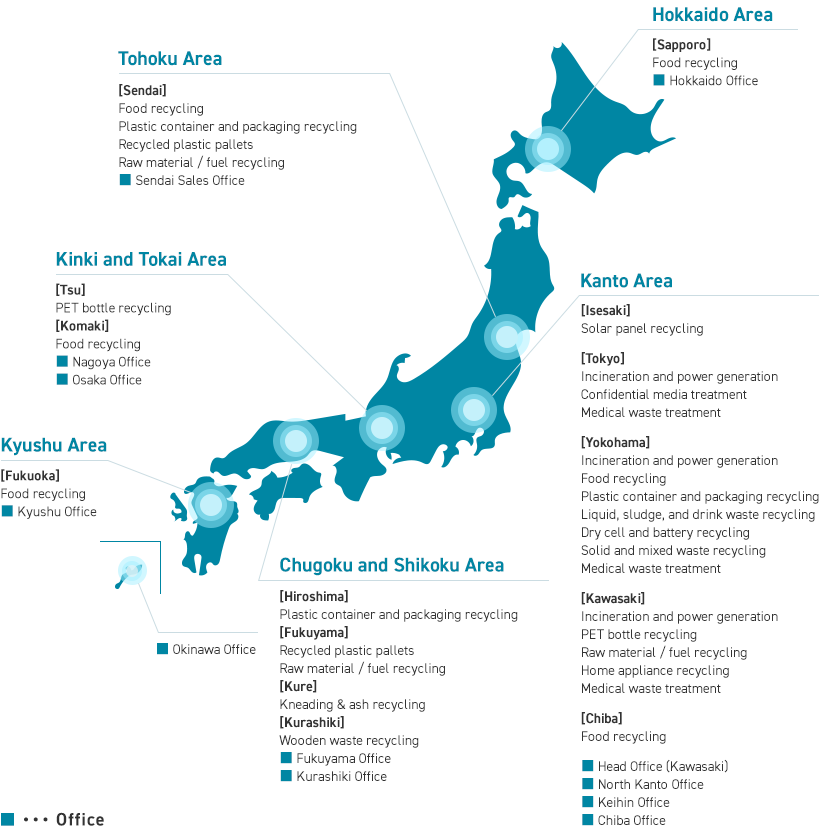
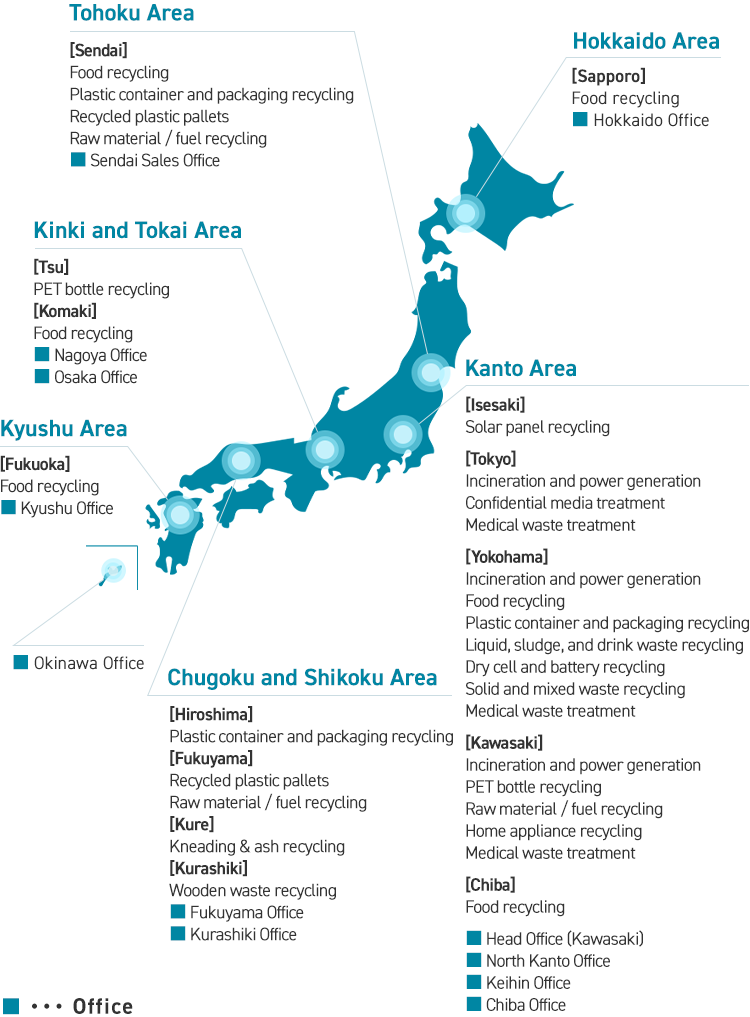
-
ASIA
Overseas Waste Incineration Business
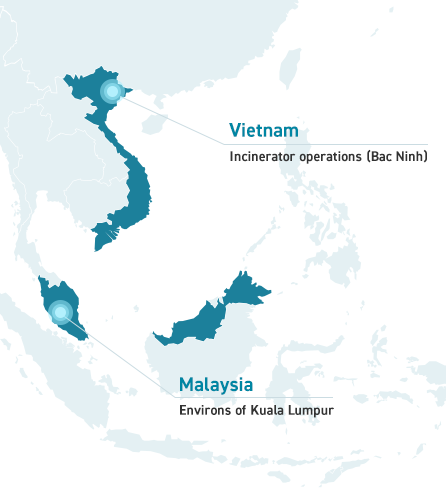
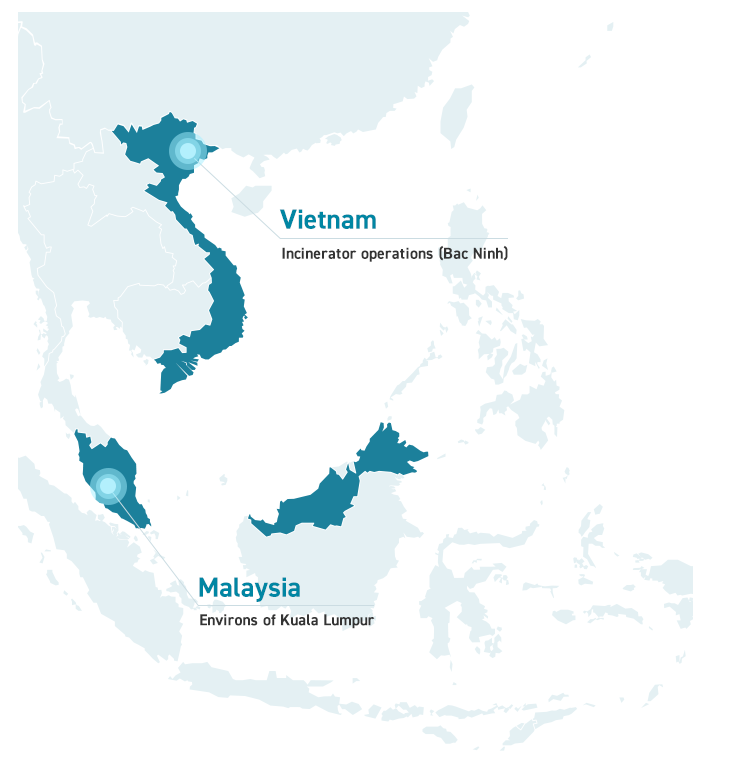
Converting Waste to Energy:
Supporting Local Community Development
J&T Recycling implements local production for local consumption recycling initiatives that maximize regional resource utilization and promote renewable energy adoption. This can increase the energy self-sufficiency of local communities and help the region prosper.
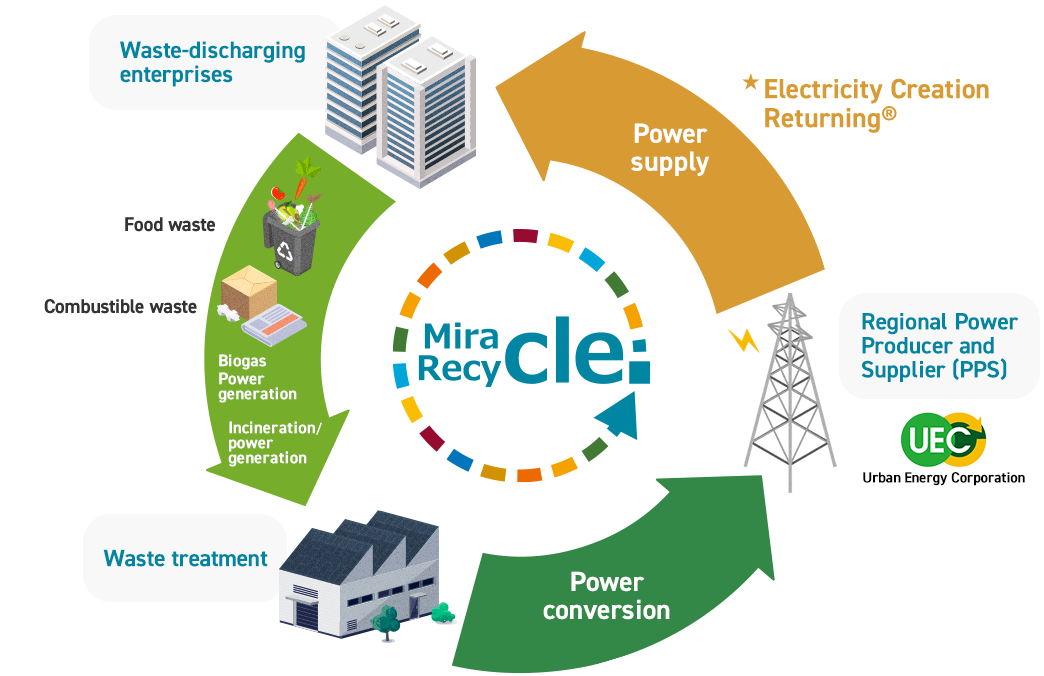
★"Electricity Creation Returning®", a service that gives a discount on electric power charges corresponding to the amount of waste discharged by the customer, is provided by Urban Energy Corporation, a "Power Producer and Supplier" (PPS) company in the JFE Group.
Food Waste to Energy:
Driving the Future of a Recycling-Based Society
J&T Recycling offers a service that converts local waste into renewable energy and feeding this back into the community with a service called "Electricity Creation Returning®", which is a business run by Urban Energy Corporation (JFE Group), selling renewable energy back to the waste generators with priority price also, aim to create "Double Recycling Loop" that create electric power and fertilizer from food waste.
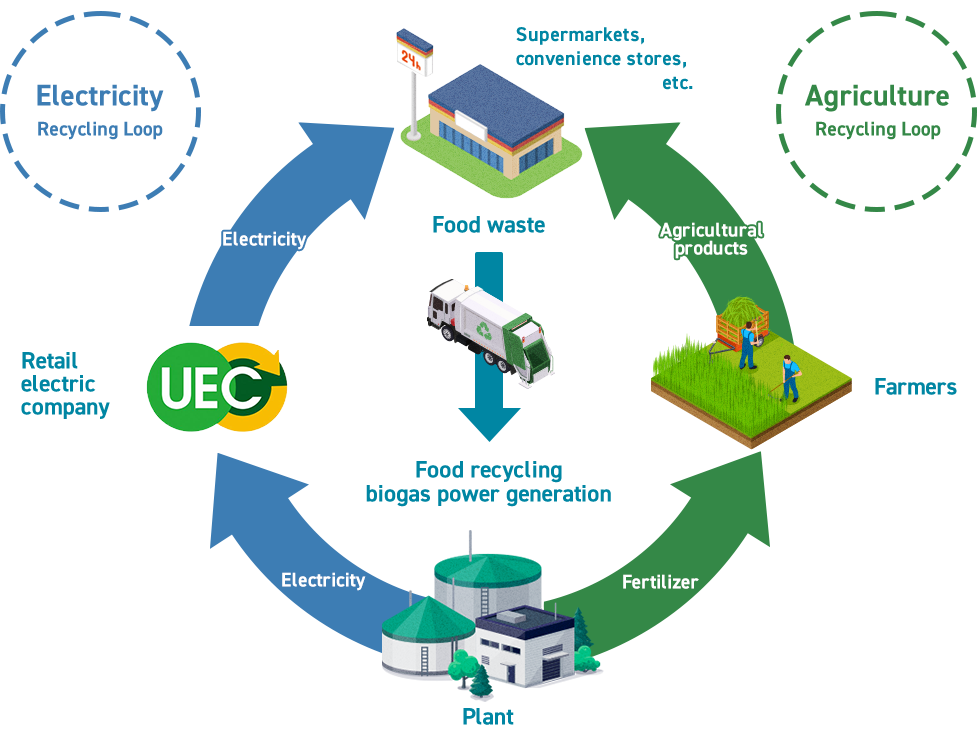
Feature of J&T Recycling's Local Production
for Local Consumption Recycling
-

Achieving 100% Recycling:
- Converting food waste into electricity and fertilizer
- Employing advanced sorting technology
- Implementing efficient processing systems
- Minimizing resource waste
- Contributing to sustainable society development
-
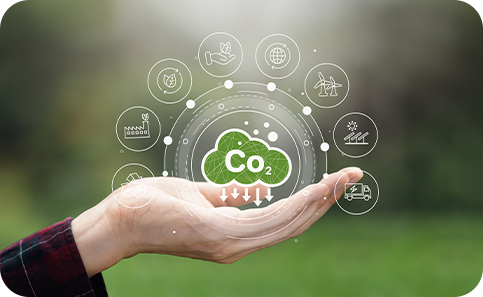
CO2 Reduction Through Biogas:
- Utilizing biogas technology for carbon reduction
- Converting food waste through microbial fermentation
- Generating biogas from organic waste instead of fossil fuels
-
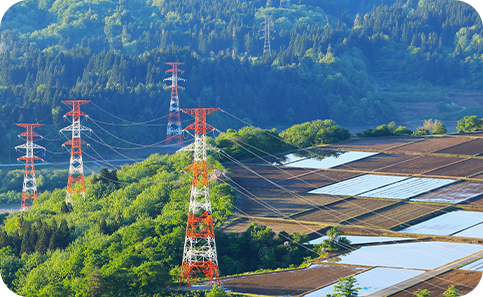
Double Recycling Loop of Energy and Agriculture:
- Converting biogas to electricity
- Transforming fermentation residue into fertilizer
- Returning both resources to local communities
- Creating a closed-loop recycling system
- Supporting regional sustainability
Related Information
Horizontal Recycling
Aiming to solve issues to achieve a recycling-based society where all kinds of things can be recycled.
